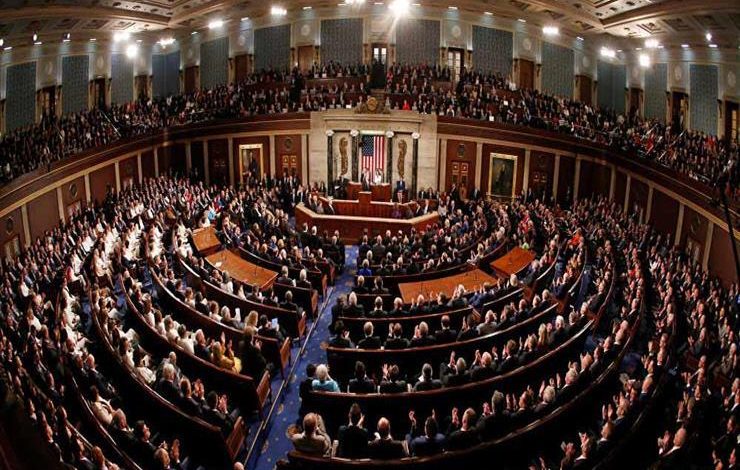Reports
New Congressional Action Against Sudan’s Rapid Support Forces

Sudan Events – Agencies
Nearly 19 months into the war in Sudan, the U.S. Congress has adopted a resolution labeling the actions of the Rapid Support Forces (RSF) and allied militias in Darfur as “genocide.” Observers see this move as a significant shift in the U.S. stance, likely to impact the trajectory of the conflict and the future of RSF leader Mohamed Hamdan Dagalo, also known as “Hemedti.”
Stalled Efforts
The use of Russia’s veto power to block a British-backed resolution at the UN Security Council calling for a ceasefire and protection of civilians in Sudan overshadowed the U.S. House of Representatives’ unanimous adoption of a resolution against the RSF for “genocide” in Darfur, particularly targeting non-Arab tribes.
The resolution, initially introduced in February by Republican Senator John James and Democrats Ben Cardin and Cory Booker, faced delays before its eventual passage. After no action was taken within the 120-day window provided to the administration, James reintroduced the resolution in June. Last week, the measure, numbered 1328, passed unanimously in the House.
During the session, James highlighted the death toll in West Darfur, the broader humanitarian crisis in Sudan, and the famine looming over displaced populations. He emphasized the resolution’s significance as a roadmap for the upcoming Republican administration under President-elect Donald Trump, pledging to support Sudanese civilians.
A Significant Shift
Experts view the resolution’s unanimous passage as a pivotal step by the U.S. legislative branch, with considerable influence in American policymaking. If endorsed by the Senate, the resolution could shape the course of the war and Sudan’s humanitarian crisis, particularly given its bipartisan origin.
The next step involves Senate approval, after which the resolution would be sent to the White House for presidential ratification. If ratified, the resolution would become binding. However, should the president decline to approve it, the resolution would remain a political statement, with executive agencies like the State Department coordinating with international partners on its implementation. Measures could include supporting international trials, imposing sanctions, establishing humanitarian corridors, and enforcing arms embargoes.
Implications for Hemedti and His Allies
Suleiman Abdel Salam, a human rights activist, noted that Congress’s stance could have significant repercussions for Hemedti and his backers. This includes countries and entities supplying weapons, enabling the passage of foreign mercenaries, and providing logistical support to the RSF. Such actions may result in sanctions and impede the RSF’s access to resources, further weakening its capabilities.
Abdel Salam added that the resolution might inspire European parliaments to adopt similar positions, potentially leading to the RSF’s designation as a “terrorist organization.” This could escalate the case to the UN Security Council and the International Criminal Court (ICC), as was done in 2005.
Nineteen years ago, the Security Council passed a French resolution referring Darfur atrocities to the ICC, resulting in arrest warrants for former Sudanese President Omar al-Bashir, his Defense Minister Abdel Rahim Hussein, and Interior Minister Ahmed Haroun.
The Role of the State Department
Sudanese lawyer and Assistant Secretary-General of the Arab Lawyers Union Tariq Abdel Fattah argued that decisions by the U.S. State Department, rather than Congress, are more impactful on foreign policy.
Abdel Fattah pointed out that previous House resolutions labeling Sudanese atrocities as genocide—three times by 2004—had limited impact until the State Department’s approval. Then-Secretary of State Colin Powell officially recognized the Darfur atrocities as genocide, leading to concrete action.
While Congress’s resolutions may carry political weight, current Secretary of State Antony Blinken’s stance diverges, as he has accused both the Sudanese army and the RSF of war crimes.
Criticism of Congressional Inconsistencies
Abdel Salam criticized members of Congress for their inconsistent labeling of organizations as “terrorist.” He noted that some groups in other countries have been designated as terrorist organizations for less severe actions compared to the RSF’s documented atrocities. He suggested that the reluctance to classify the RSF as a terrorist organization might be a calculated move to preserve it as a negotiating party, allowing it to retain some political leverage in future discussions.



